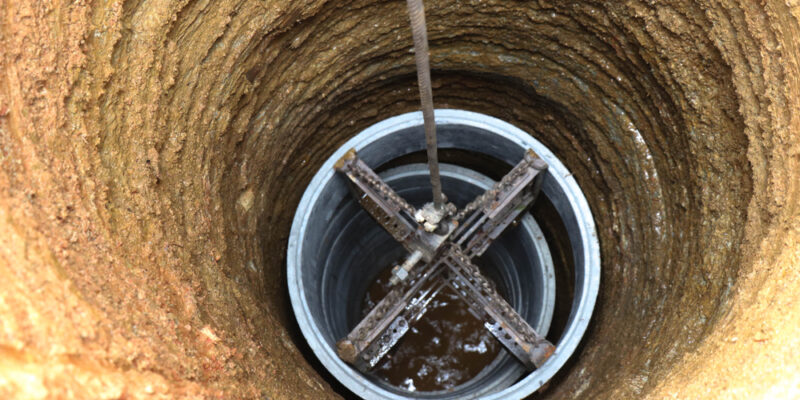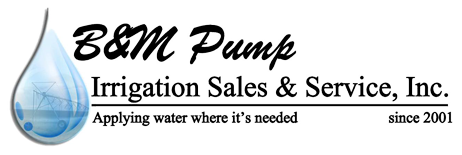
Water Well Drilling in West Texas: What Property Owners Need to Know in 2025
In West Texas, water is both a precious resource and a critical foundation for life and growth. Towns like Lubbock, Abilene, TX, Midland, and Big Spring, TX continue to experience population expansion, agricultural development, and industrial demand. Property owners in this region face unique challenges when it comes to reliable water access. Municipal supplies are not always sufficient, especially in rural areas, making water well drilling one of the most practical solutions.
Drilling a private well ensures independence from fluctuating municipal systems while providing consistent access to clean water. This independence is especially important in agricultural operations, where irrigation for crops and water for livestock cannot afford delays or shortages. For homeowners, a well represents not just convenience but also property value. In 2025, with continuing drought conditions across parts of Texas and increased scrutiny on groundwater rights, property owners are seeking clarity on how to approach well drilling responsibly and effectively.
The Well Drilling Process in 2025
Water well drilling is a highly technical process that requires professional expertise. In cities like Lubbock and Abilene, TX, wells must be drilled according to geological surveys that determine aquifer depth and quality. The first step is site evaluation. Licensed well contractors in Midland use advanced mapping technologies, including digital hydrogeological data, to pinpoint the best drilling location.
The drilling itself involves specialized equipment capable of penetrating hundreds of feet into rock and soil. Modern rigs in 2025 are faster, safer, and more environmentally efficient than those of past decades. After reaching the aquifer, steel or PVC casing is installed to stabilize the well walls and prevent contamination. Grouting seals off the space between the casing and borehole, ensuring that surface contaminants cannot seep into the water supply.
Once construction is complete, a pump system is installed. In Big Spring, TX, water wells often require submersible pumps designed to handle variable demand. Contractors may also integrate filtration systems to improve water quality. Property owners should expect the drilling and installation process to take several days to weeks, depending on site conditions and depth requirements.
Regulatory and Legal Considerations
Owning a well in West Texas is not simply about hiring a contractor and starting to drill. Local and state regulations govern how wells can be drilled and managed. The Texas Commission on Environmental Quality (TCEQ) and local groundwater conservation districts oversee permitting, spacing, and water usage rights.
For property owners in Abilene, TX, wells may need to meet minimum spacing requirements from property lines or existing wells to protect shared aquifers. In Midland, well contractors must adhere to safety and reporting standards, including submitting records of well depth and casing specifications. Big Spring, TX has additional rules for agricultural wells, especially those designed for high-capacity irrigation.
In 2025, water rights are a pressing issue. Texas follows the rule of capture, which allows landowners to pump groundwater beneath their property. However, conservation districts can impose restrictions during droughts or periods of aquifer stress. This means property owners must balance their immediate water needs with long-term sustainability. Consulting with well drilling professionals who understand local regulations ensures compliance and prevents costly legal disputes.
Costs and Financing for Well Drilling
The cost of water well drilling in West Texas varies widely based on location, depth, and intended use. In Lubbock, shallow domestic wells might cost between $8,000 and $12,000, while agricultural or commercial wells in Abilene, TX can reach $30,000 or more. Midland well contractors often price based on depth per foot, with additional fees for casing, pumps, and water treatment systems.
Maintenance is another financial consideration. Pumps generally last 10 to 15 years, but periodic service is required to ensure efficiency. Well inspections, water quality testing, and potential upgrades such as filtration add to long-term costs. However, owning a well often offsets municipal water bills, making it a valuable investment for property owners.
In 2025, financing options are expanding. Agricultural producers in Big Spring, TX can apply for grants or low-interest loans through state water conservation programs. Homeowners may also qualify for financing through local banks or cooperative lending programs that recognize the value of water independence. Property owners are encouraged to request detailed quotes from multiple contractors to compare services and costs before moving forward.
Choosing the Right Well Contractor
Selecting the right professional is perhaps the most important decision in water well drilling. In Midland, well contractors must be licensed by the Texas Department of Licensing and Regulation (TDLR), which ensures they meet training and safety standards. Beyond licensing, property owners should look for contractors with experience specific to West Texas geology. Aquifer depths vary significantly from Lubbock to Big Spring, TX, and local knowledge is critical to a successful project.
Reputation and references matter. Asking neighbors about their experiences with contractors in Abilene, TX can help identify reliable professionals. Contractors should provide detailed contracts outlining costs, timelines, and warranties for both drilling and pump systems. Property owners should also confirm that the contractor carries liability insurance to cover potential damages during drilling.
In 2025, many contractors also offer digital monitoring solutions. These systems allow property owners to track water levels, pump performance, and energy consumption through mobile apps. This not only improves efficiency but also extends the lifespan of the well by detecting issues early.
Conclusion
Water well drilling in West Texas remains one of the most practical and sustainable ways to secure reliable water access in 2025. Whether in Lubbock, Abilene, TX, Midland, or Big Spring, TX, property owners must navigate technical, legal, and financial considerations to ensure long-term success. With growing demand for water across residential, agricultural, and industrial sectors, wells provide independence and value, but they also come with responsibility. Choosing the right contractor, complying with local regulations, and planning for long-term maintenance are the cornerstones of a successful water well project.
For property owners looking to secure their future in West Texas, investing in professional water well drilling services today ensures that water needs are met tomorrow. The combination of modern drilling technology, regulatory compliance, and careful financial planning makes wells not just a necessity but a cornerstone of property ownership in the region.
Need an Irrigation System Company Near You?
Welcome to B&M Pump Irrigation Sales & Service, Inc.! We are your professional irrigation specialist! Our typical services include complete pump service, water well service, system design, and pivot systems. We deliver personal service and reliability to our customers in Texas, Oklahoma, New Mexico, and Arizona. No matter where you are in the southwest, B&M Pump Irrigation Sales & Service, Inc., is a name you can trust. We strive to educate owners and operators on making pumps and motors last longer and work more efficiently. We sell good quality products at a fair price and stand behind the products we sell. Give us a call today to speak with one of our service experts today!
Categorised in: Water Wells
